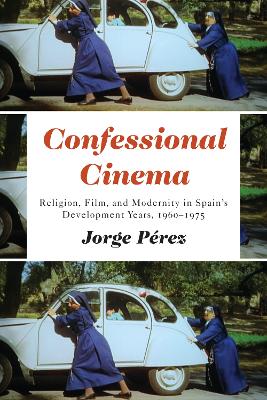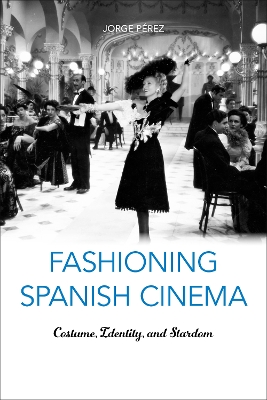Toronto Iberic
2 total works
Confessional Cinema offers a provocative and original analysis of the significance of religion not from a theological point of view, but rather as a socio-political force and cultural determinant in the Spanish public sphere of this period, known as desarrollismo (development years) from 1960-1975.
Costume design is a crucial, but frequently overlooked, aspect of film that fosters an appreciation of the diverse ways in which film and fashion enrich each other. These influential industries offer representations of ideas, values, and beliefs that shape and construct cultural identities. In Fashioning Spanish Cinema, Jorge Pérez analyses the use of clothing and fashion as costumes within Spanish cinema, paying particular attention to the significance of those costumes in relation to the visual styles and the narratives of the films. The author examines the links between costume analysis and other fields and theoretical frameworks such as fashion studies, the history of dress, celebrity studies, and gender and feminist studies.
Fashioning Spanish Cinema looks at instances in which costumes are essential to shaping the public image of stars, such as Conchita Montenegro, Sara Montiel, Victoria Abril, and Penélope Cruz. Focusing on examples in which costumes have discursive autonomy, it explores how costumes engage with broader issues of identity and, relatedly, how costumes impact everyday practices and fashion trends beyond cinema. Drawing on case studies from multiple periods, films by contemporary directors and genres, and red-carpet events such as the Oscars and Goya Awards, Fashioning Spanish Cinema contributes a pivotal Spanish perspective to expanding interdisciplinary work on the intersections between film and fashion.

